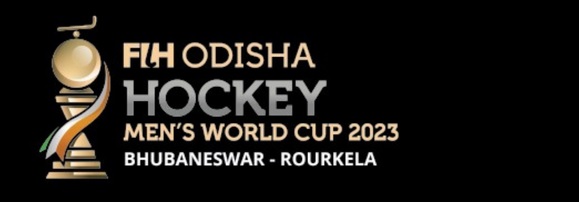Last Updated on January 5, 2023 12:30 am by INDIAN AWAAZ

Harpal Singh Bedi
With just nine days to go for the 15th Hockey World, the team which has won it for the maximum four times-Pakistan, will not been seen in action having failed to qualify.
16-teams will commence their campaign for the top Honours in the World Cup starting simultaneously in Bhubaneshwar and Rourkela on 13th January.
Pakistan not only won the first edition of the tournament . They are also the team that has won the most World Cups with 4 gold medals.
Through the first 8 editions of the Cup, Pakistan collected 4 gold and 2 silver medals, making them the most successful team in the Tournament . They won their 4th gold medal in Sydney in 1994, no other team has been able to equal their gold medal tally so far.
Odisha will be hosting its second consecutive world cup, a distinction no other hockey playing city or country has ever enjoyed. In between these two events the state also hosted the Junior World Cup.
This will be third World Cup being hosted in India in 12 years apart from the three junior World cups (2013,2016,2021) which were held in the country.

Odisha has also been the venue for Hockey Pro League over the past 4 years, following the FIH Hockey Men’s World Cup in 2018.
Both Bhubaneswar and Rourkela, will host matches on the opening day of the World Cup The first match of the day will be played in the Kalinga stadium in Bhubaneswar, where 2016 Olympic Gold medalists Argentina will take on reigning African Champions, and victors of the recent inaugural edition of the Nations Cup: South Africa.
This will be followed by more Pool A action between World No. 1 Australia and the rapidly improving French team.
The action will then shift to the Birsa Munda Hockey Stadium in Rourkela, where teams of Pool D will get their campaigns underway, as England take on Wales in the first game to be played at the brand-new stadium. The final game of the opening day will pit hosts India against Spain. The two teams were involved in highly entertaining matches of the Pro League, held in Bhubaneswar late last year.
As per the statistics released by the FIH media, Australia and Netherlands come in next with 3 gold medals each. Australia have won a total of 10 medals at the World Cups, which is the most amongst all nations. Its tally includes 3 gold medals, 2 silver medals and 5 bronze medals.
Netherlands have won 9 medals – 3 golds, 4 silver and 2 bronze medals. Australia last won the gold at the 2014 World Cup, while Netherlands’ wait for the title has been really long, having last won the 1998 edition.
The Dutch were close to the elusive 4th gold medal at both 2014 and 2018 , ending with the silver medal at both editions.
Germany have won 2 gold medals, with the last one coming in 2006. India (1975) and Belgium (2018) are the other two teams to have won gold medals
Australia boasts of the highest win percentage at the men’s World Cups, winning 69 of the 92 matches they have played in, an astounding 75%! Netherlands have played the greatest number of matches at the World Cup, completing 100 matches in the finals of the 2018 World Cup, ahead of India, who have played 95 matches.
Australia also have produced the most attacking hockey at the World Cups, scoring 307 goals in the 92 matches, at a rate of 3.3 goals per game! Netherlands and Pakistan have the next best scoring averages, with Netherlands averaging 2.67 goals scored per game, and Pakistan averaging 2.64 goals per game.
Australia also has a big defensive record at the World Cups, letting in just 107 goals in their 92 games, at an average of 1.16 per game.
India, Netherlands and Spain are the only teams to have appeared in all 14 editions so far. Argentina, Australia, England and Pakistan have appeared in 13 editions so far, with only Pakistan missing out on the 2023 edition.
A total of 26 nations have competed at the 14 editions of the men’s World Cup so far. Chile and Wales will take the number up to 28 as they make their debut appearances at the FIH Odisha Hockey Men’s World Cup 2023 Bhubaneswar-Rourkela.
Pools
Pool A: Australia, Argentina, France, South Africa
Pool B: Belgium, Germany, Korea, Japan
Pool C: Netherlands, New Zealand, Malaysia, Chile
Pool D: India, England, Spain, Wales
